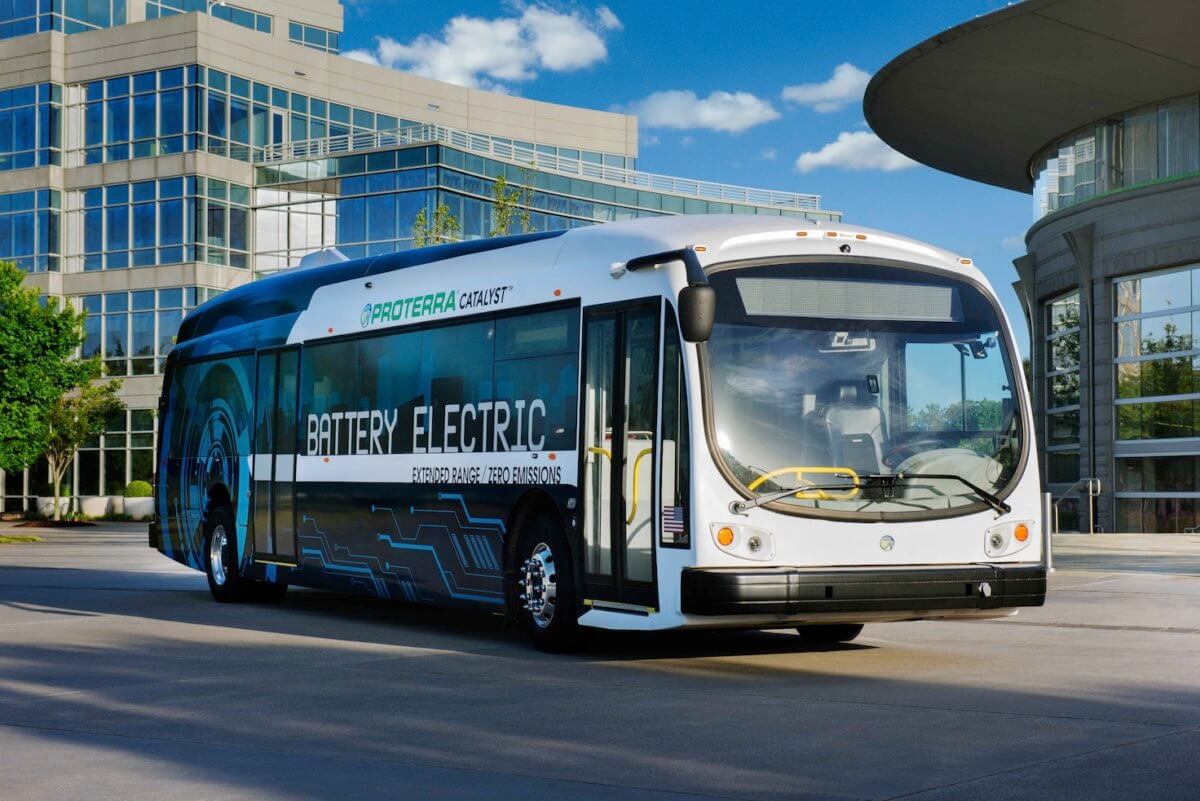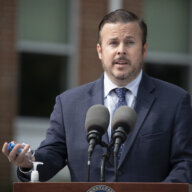In general, experts agree that one of the most environmentally beneficial things the average person can do is to leave their car at home and ride mass transit. But at SEPTA, the carbon footprint is diminished a little more due to the diverse sustainability initiatives underway, from acquiring more electricity-powered buses to using renewable energy and even simpler tasks like recycling rainwater to wash buses.
“SEPTA is actually a net emissions reducer, if you look at the extent to which we reduce automobile use and also support dense land uses and compact development,” said Erik Johanson, SEPTA’s director of business innovation. “When ridership grows, SEPTA’s environmental dividend also grows. So SEPTA’s environmental story is not just about reducing its own emissions, it’s also about encouraging mass transit usage, which reduces overall emissions.”
SEPTA’s board recently adopted a new Energy Action Plan to achieve their sustainability goals. Here are a few of the ways SEPTA is reducing its carbon footprint in the years to come:
Solar
SEPTA is planning to install 3 megawatts worth of roof-mounted solar panels on top of three of their largest maintenance facilities. The panels are expected to cover 25 percent of the facilities’ power needs. It will be the second largest installation of solar panels in all of Philadelphia, behind those installed at Lincoln Financial Field by the Eagles.
Buses
SEPTA won a federal grant in 2016 to buy fully electric buses for mass transit, designed by Proterra. Twenty-five zero-emissions electric buses are coming later this year to South Philly, where they will roll along bus routes 29 and 79. SEPTA said it’s going to closely monitor outcomes and activity, battery life and the associated infrastructure (charging stands), with an eye toward the logistics of “converting to a fully electrified fleet,” said SEPTA planner Becky Collins. “We’re not waiting until our next procurement, we’re looking at that now.”
In the meantime, they recently ordered 525 new hybrid-electric buses to continue phasing out fully diesel buses, and by 2021, they say 95 percent of the bus fleet will be hybrid-electric.
“You can call it a green fleet by 2021,” Johansen said. He noted that hybrid-electrics do well in trafficky urban areas like Philadelphia because the buses charge energy as they brake, so frequent starts and stops actually benefit the buses.
New plant
SEPTA is exploring how to purchase energy generated through renewable sources, but in the meantime, say their proposed power plant at the Midvale Depot, on the border of Germantown and Nicetown, is part of an overall sustainability strategy, even though it has taken some criticism from environmental activists who want SEPTA to go fully renewable (i.e., only wind and solar). The EPA found that the plant, which will generate electricity with natural gas, will reduce overall greenhouse emissions by 41 percent. SEPTA says the plant will cover almost half the electricity needs of the Regional Rail.
“The critics of the project will say they want everything to move to their definition of renewable energy, wind and solar,” Johanson said. “We’ve documented extensively that this project is not possible with wind and solar, even with a giant array of batteries. Ultimately what this comes down to is a question of whether the project is worth doing or not, and we believe very much that it is.”
Water collection
SEPTA is also collecting precipitation in cooperation with the Philadelphia Water Department, which has asked citizens to collect rainwater in barrels or through green space drainage on their property to ensure Philly can absorb its rainwater without overwhelming its sewer system. SEPTA has bio-retention basins installed to capture stormwater over more than 6 acres at their Southern Bus Depot, while at Frontier District in Conshohocken, captured rainwater is recycled to wash buses, saving an estimated 1 million gallons of water per year.




























